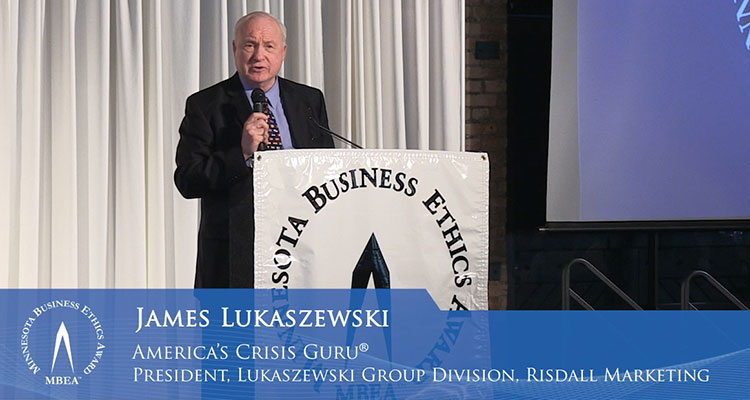- Find the truth as soon as possible: Tell that truth and act on it now.
- Promptly raise the tough questions and answer them thoughtfully: This includes asking and answering questions yet to be asked or thought of by those who will be affected by whatever the circumstance is.
- Vocalize core business values and ideals constantly: Most core values are a set of ideas thought up on a management outing, brought in on the back of a clubhouse napkin, then printed and posted without another word being spoken.
- Walk the talk: Live the values, help people understand the organization through examples that demonstrate the context of its values and ideals at every opportunity.
- Help, expect and enforce ethical leadership: People should be watching, people should be counting, people should know when there are lapses in ethics. When trust is broken, employees can safely bring ethical problems to the attention of leadership or their immediate supervisors.
- Be a cheerleader, model and teacher of ethical behavior: Ethical behavior builds and maintains trust. In fact, to have trust in an organization requires that its leaders act ethically constantly.
- Clearly convey that Core Values matter as much as profits.
Whether George was truly innocent or guilty was something I was never privy to. After his acquittal we never spoke again. But I have seen over the years that guilty criminals, including senior executives and an occasional CEO, even the toughest ones, cry when they are finally caught . . . and confronted with their ethical blind spots and subsequent crimes.
Will Durant in his book, “The Story of Philosophy,” defined the study of ethics within the context of philosophy as “the search for ideal behavior.” Lots of definitions of ethics float around these days, but this particular definition is extremely relevant as we recognize the heroic companies today’s program honors. They clearly meet the ethical expectations of leaders. Congratulations to all of you.







